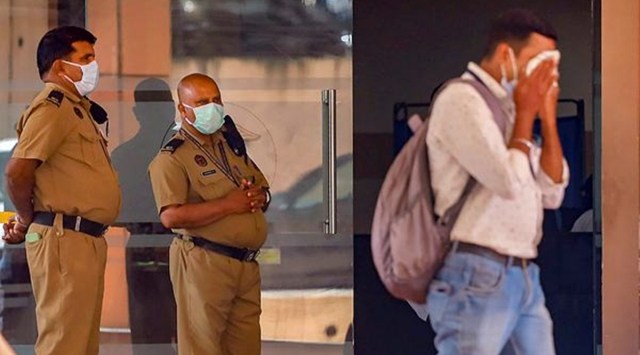Stay updated with the latest - Click here to follow us on Instagram
Nipah scare: Karnataka issues guidelines, orders to set up fever surveillance checkposts on Kerala borders
The Karnataka health department has asked the hospitals to train staff right up to primary health centres to deal with the suspected cases of Nipah.
 Chamarajanagara, Mysuru, Kodagu and Dakshina Kannada districts have been directed to set up checkposts for fever surveillance at the point of entry from Karnataka to Kerala.(PTI Photo)
Chamarajanagara, Mysuru, Kodagu and Dakshina Kannada districts have been directed to set up checkposts for fever surveillance at the point of entry from Karnataka to Kerala.(PTI Photo) In the wake of the six cases of Nipah and two confirmed deaths in Kerala, the Karnataka health department has issued surveillance guidelines in the districts bordering the neighbouring state to contain the spread of the disease.
The guidelines issued by Health Commissioner Randeep D on Thursday suggested to the public to avoid unnecessary travel from Karnataka to the affected area of Kerala.
Chamarajanagara, Mysuru, Kodagu and Dakshina Kannada districts have been directed to set up checkposts for fever surveillance at the point of entry from Karnataka to Kerala. Officials in these districts have been asked to intensify the fever surveillance.
Randeep has directed the officials to take up awareness campaigns on Nipah in order to avoid panic among the public.
The health department has asked the hospitals to train staff right up to primary health centres to deal with the suspected cases of Nipah.
“District Rapid Response Team (RRT), including veterinary officers, has to be alerted if there is a suspect of a case. Identify and keep reserved at least two beds in the district hospital for quarantining the suspected cases reported, if any, and negative pressure ICUs’ to be identified. Ensure adequate stock of all essential drugs and oxygen in the hospitals. Ensure adequate stock of PPE, VTM and other accessories for sample collection and transportation from a suspected case,” the directives to the district authorities said.
All private hospitals, nursing homes and clinics have to report the suspected case of Nipah to the District Health and Family Welfare Officer of the district concerned, said the guidelines. The samples (throat swab, urine, blood) of the suspected case have to be collected and sent to the National Institute of Virology, Pune.







